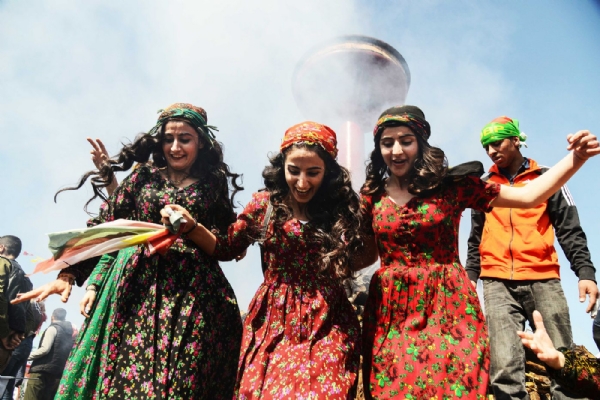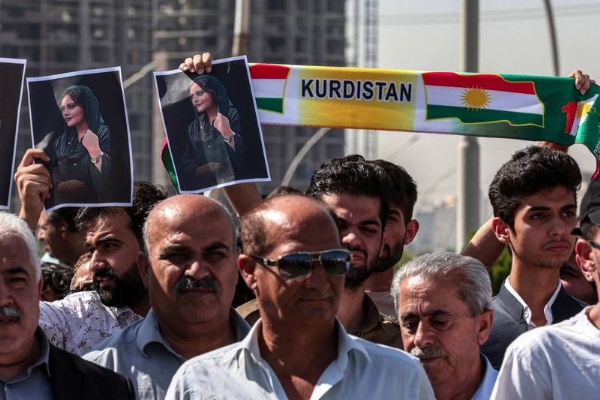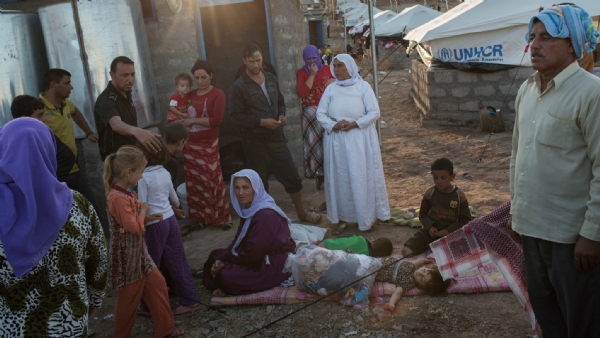Kurdish: Story of a community attacked by fellow Muslims
Despite the significant presence of Islam in Kurdish society, the Kurds have maintained a distinct cultural and linguistic identity and have often resisted efforts by outside powers to assimilate them into the larger Arab or Turkish cultures.
Total Views |
In a recent attack on 3 Kurdish men in French capital Paris, a gunman shot dead three people at a Kurdish cultural centre and nearby Kurdish cafe, that eventually prompted violent protests in nearby streets as night fell. The Kurdish community in France is a diverse and vibrant group of people who have a rich cultural heritage and a long history of struggle for self-determination.

Despite facing many challenges and obstacles, the Kurds in France have managed to establish a strong presence and make significant contributions to French society. One of the major challenges faced by the Kurdish community in France is the threat of violence and discrimination. Reports suggest that in recent years, there have been a number of attacks on Kurds in France, including physical assaults, vandalism, and hate speech.
However, Kurds being attacked in France is not an unusual sight or rather there are a few countries other than France where the community is often targeted and at times even attacked by fellow Muslims. Why is it so? What is their story?
Who are the Kurds and what is the ethnic belonging of Kurds?
The Kurds are an ethnic group native to the Middle East, specifically the region known as Kurdistan, which includes parts of Turkey, Iraq, Iran, and Syria. The Kurds have a long and complex history dating back thousands of years, and their origins are still the subject of debate among historians and scholars. Some believe that the Kurds are descended from the ancient Medes, a group of Indo-Iranian peoples who lived in western Iran in the first millennium BCE.
Others trace the origins of the Kurds to the Scythians, a nomadic group that lived in the region between the 7th and 3rd centuries BCE. There is also evidence that the Kurds may have descended from a mix of different peoples who have lived in the region over the centuries, including the Persians, the Byzantines, and the Ottoman Turks.
Today, the Kurds are a diverse group, with a variety of different cultural and linguistic traditions. However, they are united by a shared history, culture, and identity, and they have a strong sense of community and solidarity.
Why Kurds had to resort to migration?
There are many factors that have contributed to the migration of Kurds over the years. One of the main reasons is political instability and conflict in the region where Kurds have traditionally lived. In cases, the Kurds in Iraq have faced persecution and discrimination at the hands of successive Iraqi governments, leading many to flee to other countries in search of safety and better opportunities. In Turkey, the Kurdish minority has also faced discrimination and repression, and many Kurds have migrated to other countries as a result.

Other factors that may contribute to Kurdish migration include economic factors such as poverty and lack of job opportunities, as well as social and cultural factors such as the desire to be reunited with family members or to live in a place with a larger Kurdish community. In recent years, the ongoing conflict in Syria has also caused significant displacement of Kurds, as many have fled to neighboring countries or further afield to escape the violence.
Why fellow Muslims discriminate among Islamic Kurds?
It's important to note that not all Muslims target Kurds, and in fact, many Kurds are Muslims themselves. However, there have been instances of Kurds being targeted by other Muslims due to a variety of factors, including political, economic, and cultural differences.
One of the main reasons that Kurds have faced persecution and discrimination from other Muslims is their desire for greater autonomy or independence. In many cases, Kurds have sought to establish their own separate state or have demanded greater rights and protections within the countries where they live, such as Turkey, Iraq, and Iran. These demands for autonomy or independence have often been met with resistance from the governments of these countries, as well as from other groups within these societies, leading to tensions and conflicts.
Additionally, Kurds have often faced economic and social discrimination in the countries where they live, which can also lead to tensions with other groups. For example, in Iraq, Kurds have often been disadvantaged in terms of access to education, jobs, and other resources, leading to resentment and conflicts with other groups.
Islamic conversion and forceful conversion of Kurds
Like many other groups in the Middle East, the Kurds have a long history of interaction with Islam. The religion of Islam spread to the region where the Kurds live in the 7th century CE, and over time, many Kurds converted to Islam. Today, the majority of Kurds are Muslims, with a significant minority adhering to other religions, such as Christianity, Yazidism, and Zoroastrianism.
However, it's important to note that the adoption of Islam by the Kurds was a complex and multifaceted process, and the role that religion has played in Kurdish society has varied over time. In some cases, conversion to Islam was voluntary and accompanied by a genuine embrace of the religion's teachings and practices. In other cases, conversion was motivated more by political or economic considerations, such as the desire to gain favor with the ruling authorities or to gain access to resources and opportunities.

Despite the significant presence of Islam in Kurdish society, the Kurds have maintained a distinct cultural and linguistic identity and have often resisted efforts by outside powers to assimilate them into the larger Arab or Turkish cultures.
There have been instances in which Kurds have been forced to convert to Islam, either by governments or by other groups. For example, during the Ottoman Empire, the Kurds were subjected to various forms of coercion and persuasion in an effort to convert them to Islam. In some cases, conversion was accompanied by incentives, such as access to education and other resources, while in other cases, it was accompanied by threats and intimidation.
In modern times, there have also been instances in which Kurds have been forced to convert to Islam, particularly in countries where the government or dominant religious group is opposed to minority religions. For example, in some parts of Iran and Iraq, Kurds who are members of minority religions, such as Yazidism or Zoroastrianism, have faced persecution and pressure to convert to Islam.
--


